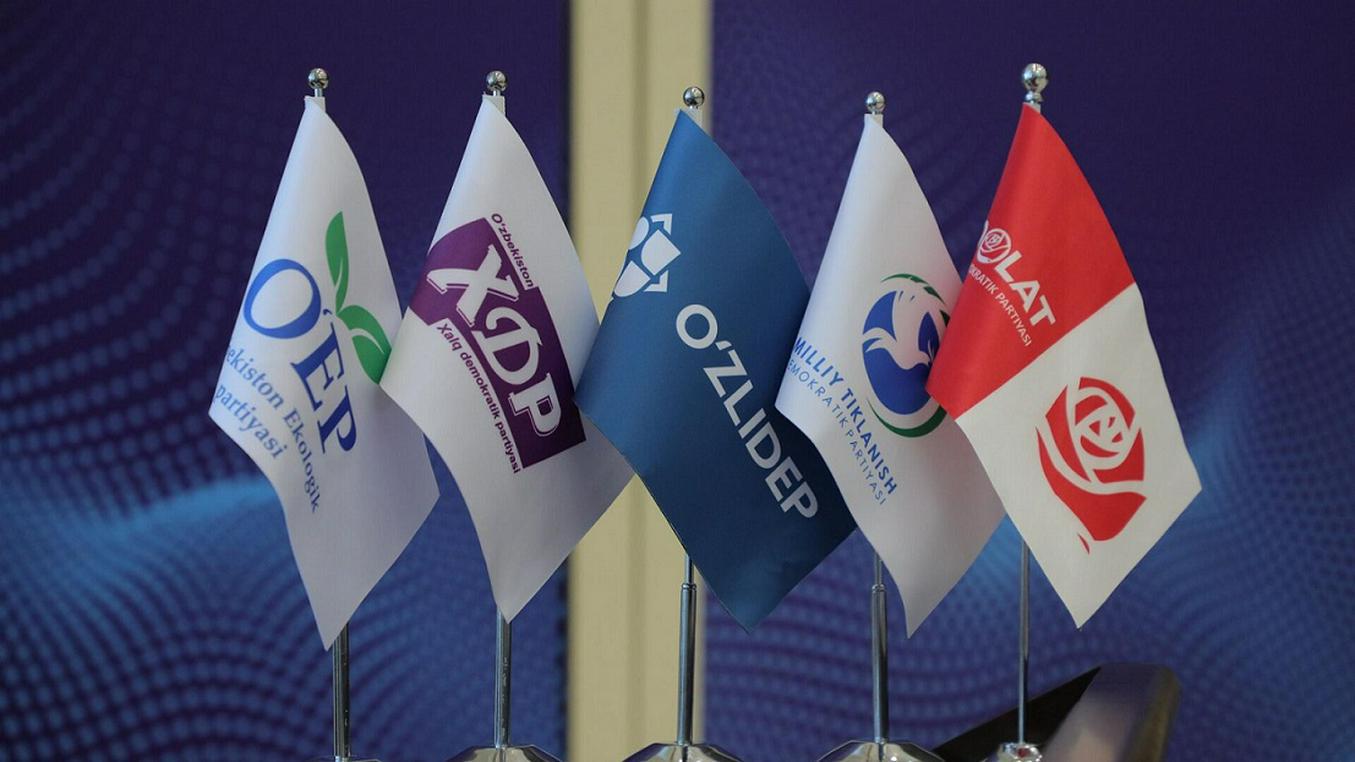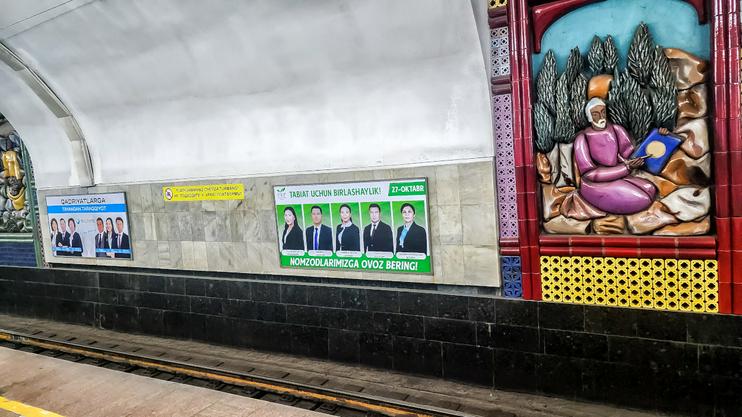On October 27, Uzbekistan will hold elections for parliament and local government bodies. Five parties will compete for 150 seats in the Legislative Chamber of the Oliy Majlis (the lower house of parliament). This time, a mixed voting system will be used: half of the deputies will be elected in single-mandate districts (counting votes for specific candidates), and half through a unified district (counting votes for political parties, with deputies coming from party lists). 40% of parliamentary seats will be allocated to women. About a month before the elections, the parties have published their platforms. Here are the main points from these documents, presented in the same order as they will appear on the ballot papers.
UzLiDeP: GDP, WTO, IT
The Liberal Democratic Party of Uzbekistan's program outlines five goals and 500 tasks for their implementation. As the ruling party led by President Shavkat Mirziyoyev, its main priorities align with the country's development strategy until 2030. UzLiDeP promises sustainable economic growth, prosperity for every individual and family, improved education, healthcare, and social protection, a favorable environment for the population, a fair state serving the people, and preservation of Uzbekistan's sovereignty and security.
The party positions itself as a movement of entrepreneurs and business people. Therefore, it's not surprising that most of the program focuses on the economy. Many of the planned indicators can be found in the President's speeches at various meetings with government members and regional governors.
The deputies promise to work towards the following achievements:
- By 2030, GDP growth to $160 billion, with per capita income reaching $4,000.
- Export volume to reach $45 billion, with $5 billion coming from IT services.
- In industry, increasing the production of high-value products to $45 billion.
- Creating about 2.5 million jobs through reforms.
The party intends to continue actively attracting foreign investments and accelerating the country's accession to the World Trade Organization (WTO). They promise to abolish about 1,000 bureaucratic requirements for entrepreneurs and halve the number of licensed activities, aiming to increase the number of business owners to 3 million.
«Milliy Tiklanish»: State Language Everywhere, Women in the Army
The «National Revival» movement continues to push its agenda. Earlier this year, party leader and Deputy Speaker of the Legislative Chamber, Alisher Kadyrov, proposed reducing Russian-language broadcasting on TV channels. The election program focuses on expanding opportunities for the development of the state language. The party promises to translate thousands of foreign sources into Uzbek, develop local literature, strengthen responsibility for violating state language legislation, and accelerate the transition to the Latin alphabet. They also aim to prioritize national personnel in employment.
Among other initiatives, the party proposes allowing women to serve in the army voluntarily. Kadyrov explained during debates that the idea is to give women the right to join the Armed Forces if they wish.
The Ecological Party: «Green Energy,» «Green Economy,» «Green Visa»
This political movement promotes environmental ideas under the slogan «Let's Unite for Nature.» The party's main goal is to achieve sustainable development, environmental security, create a favorable environment for current and future generations, and ensure the implementation of state policies aimed at preserving natural resources.
Given that Tashkent consistently ranks among the world's most polluted cities, the eco-movement proposes introducing a moratorium on construction in large settlements until their master plans are approved, and gradually phasing out cars. The party promises to ensure that by 2030, 20% of residents in megacities will use bicycles for transportation.
They also propose a more global idea — to completely switch domestic automotive industry to electric vehicle production by 2035.
PDPU: State Regulation in the Economy, Social Shops, and Jury Trials
The People's Democratic Party has put the principle of «Uzbekistan as a social state» at the forefront. Based on this, the political movement has included 15 strategic steps in its election program, planned for implementation over five years.
Among the global initiatives is the development and adoption of a Social Code. The document is expected to legally specify categories of citizens in need of support, outline a system for identifying them, and establish procedures for providing assistance.
The party also promises to fight for the rights of the poor, pensioners, disabled people, and labor migrants, and for equal opportunities in education and healthcare. An interesting point is the introduction of a network of social shops with affordable essential goods.
In economic matters, the party appears to oppose the ruling power. While the government aims for liberalization, the PDPU advocates for strengthening the state's main regulatory role. In particular, it proposes introducing strict control over strategically important companies, prohibiting their privatization by law.
An interesting initiative is the introduction of a «luxury tax,» where wealthy citizens would be required to pay more, regardless of their income sources.
The Justice Social Democratic Party, trying to live up to its name, has proclaimed «establishing justice» as its main goal. To achieve this, the political movement has developed a program of eight global points, including: creating a rule of law, developing democratic institutions, sustainable economic growth, strong social policy, public health, support for families and women, ecology, and fighting corruption.
The party advocates for the introduction of progressive tax rates based on the principle «those who earn more pay more.» According to politicians, such a system will reduce income inequality observed in the republic.
Evaluating the election programs of all five parties, political science doctor Sayfiddin Zhuraev noted that the initiatives presented in the platforms are well thought out and relevant. According to the expert, they will undoubtedly be supported by the population.
«The programs of political parties represent ideologically coherent constructs, which undoubtedly creates a good opportunity for voters to choose ideologically close priorities. The realism of the presented proposals and ideas is also a strong point of these programs,» Zhuraev emphasized.











